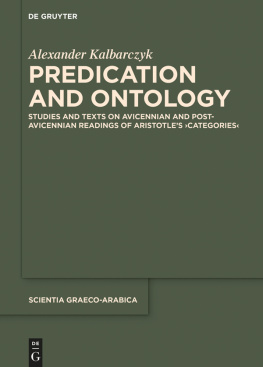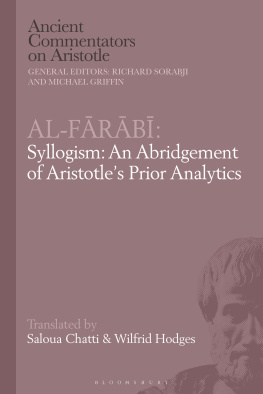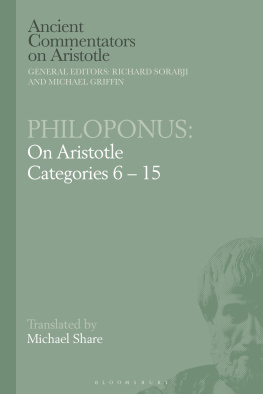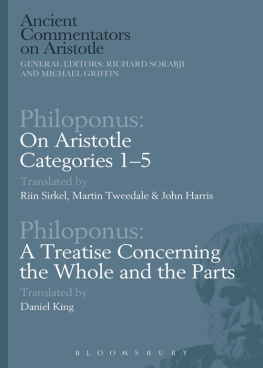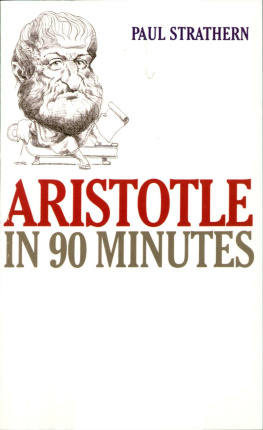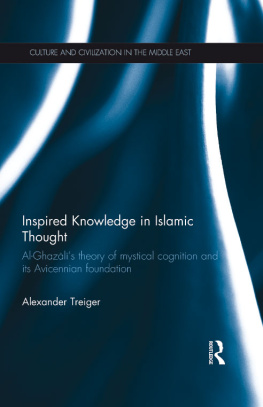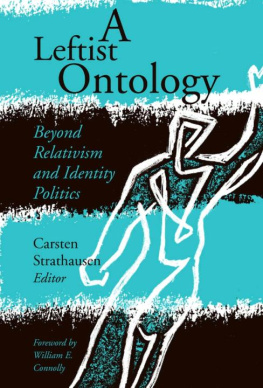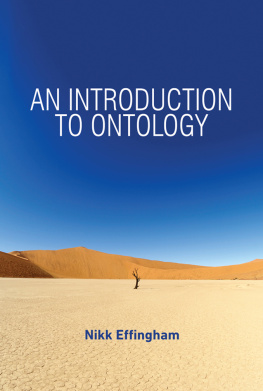Table of Contents
Guide

Predication and Ontology
Scientia Graeco-Arabica
herausgegeben von
Marwan Rashed
Band 22
De Gruyter

Zugl. Diss. Ruhr-Universitt Bochum 2016
ISBN 978-3-11-058473-8
e-ISBN (PDF) 978-3-11-059197-2
e-ISBN (EPUB) 978-3-11-059170-5
ISSN 1868-7172
Library of Congress Control Number : 2018939088
Bibliografische Information der Deutschen Nationalbibliothek
Die Deutsche Nationalbibliothek verzeichnet diese Publikation in der Deutschen
Nationalbibliografie; detaillierte bibliografische Daten sind im Internet
ber http://dnb.dnb.de abrufbar.
2018 Walter de Gruyter GmbH, Berlin/Boston
www.degruyter.com
Preface
For approximately four years I enjoyed the privilege of thinking, reading, talking (and at times even dreaming) about a small treatise by Aristotle and the enormous effect it had on the course of intellectual history, particularly on a philosophical reform project that was launched more than thirteen centuries later in the Eastern part of the Islamic world.
The present book was written under fortunate circumstances: with a scholarship from the Cusanuswerk and in the framework of the British-German research project Major issues and controversies of Arabic logic and philosophy of language, based at Ruhr-Universitt Bochum as well as Cambridge University and jointly funded by Deutsche Forschungsgemeinschaft (DFG) and the British Arts and Humanities Research Council (AHRC). I would like to express my deep gratitude to my first supervisor Cornelia Schck (Bochum) for all her intellectual and practical support. Moreover, I would like to thank my second supervisor Peter Adamson (Munich) and the doyen of Graeco-Arabica Gerhard Endre (Bochum) for their encouragement and inspiration. Last but not least I am grateful to Tony Street for the exciting workshops he organized at the University of Cambridge and to all participants of these memorable gatherings for their helpful remarks and challenging questions.
My Benedictine school in Augsburg enabled me to grow in the love of God and wisdom. During my studies in Berlin, Rome and Cairo I came across the relation of language and reality in all kinds of variations. The manner in which my family contributed to this book is too manifold to be expressed in few words: I am blessed to be the son of caring and committed parents, to be married to a wonderful woman who is my partner in all dimensions of being and to be the father of two marvelous children who taught me more astonishment and humility than philosophy ever could.
INTRODUCTION
In light of the great quantity, quality and impact of philosophical texts from the Islamicate world, the research on this rich intellectual tradition may still be said to be in its juvenile period. Notwithstanding some significant progress in the last years, this general assessment is to a large extent even true of the multifaceted oeuvre of the most famous and influential Muslim philosopher of all times, Ab Al al-usayn b. Abdallh b. Sn (d. 428 AH / 1037 AD), better known in the Latin West as Avicenna. Philologically sound editions of at least his major philosophical works, such as the K. a-if and al-Irt wa-t-tanbht , are still missing let alone complete and reliable translations into Western languages.
This rather discouraging state of affairs, by and large, also extends to the level of an analytical appraisal of Ibn Sns philosophy. To be sure, ever since Dimitri Gutas seminal study Avicenna and the Aristotelian Tradition has laid the ground for a systematic philosophical engagement with the Corpus Avicennicum,
Given the eminent role which Aristotles Categories and the abundant commentaries on this short work have played throughout the entire history of philosophy up to the present day and given the enormous amount of literature both on the Categories itself and on its exegetical history,
What is lacking, however, is a close reading of larger parts of Ibn Sns extensive K. al-Maqlt of the if . The present study, therefore, intends to pave the way towards a deeper contextualized understanding of Ibn Sns critical account of the Categories within his wider project of rearranging the transmitted body of philosophical knowledge a transformation process whose impact cannot be overestimated. Against the background of the late ancient commentary tradition and the subsequent exegetical efforts advanced by the Baghdad Peripatetics, it will become clear that the K. al-Maqlt of the if marks an important milestone in the gradual Avicennian reshuffle of the relationship between logic proper and ontology. In order to assess the philosophical impact of this realignment, I also take into account some of the subsequent developments in Ibn Sns writings and in the emerging post-Avicennian tradition.
In doing so, my focus will lie on the two fundamental classification schemes which Aristotle introduces in the treatise: The fourfold scheme of Cat . 2 and the tenfold scheme of Cat . 4. Both schemes pose the question of whether and how the manner in which an expression is predicated of another expression is connected to extra-linguistic reality, that is to say, on issues pertaining to the relationship between logico-linguistic and ontological divisions. These two areas are at the core of Ibn Sns momentous reform of the Aristotelian curriculum an ambitious philosophical project whose rationale, as we shall see, is given in the Maqlt of the if and whose implementation can best be observed in the Irt .
First of all, I will inspect the classical question which all ancient and medieval readers including Ibn Sn and his Arabic predecessors and contemporaries ). Whereas Ibn Sn, by and large, adopts the traditional interpretation according to which accident in contrast to substance lacks conceptual unity and generic predicability, he discards the arguments which had previously been provided in favor of it as insufficient. This critical reassessment inspired some of his philosophical heirs to question the conceptual unity and generic predicability of substance as well. As we shall see, Ibn Sns comprehensive reappraisal of the Categories both with regard to the epistemological place of the treatise as a whole and of the fundamental classification schemes it contains was to have a defining impact on the study of logic, metaphysics, and even natural philosophy in the ensuing intellectual tradition of the Islamic East.
KEY ISSUES IN IBN SNS RECEPTION OF THE CATEGORIES AND IN THE ENSUING PHILOSOPHICAL DEBATES
1. Varying Approaches of Determining the Scope of the Categories
A. S TUDY
1.1. Pre-Avicennian Justifications for Including the Categories in the Logic Curriculum
Among the six (or more) main points of inquiry () which, according to the Neoplatonic commentators, need to be clarified prior to reading the Categories , Since among Aristotles ancient readers there appears to have been a broad consensus on the view that the Categories , in one way or another, aims at outlining ten genera , the investigation of its usually amounts to the question of what the ten categories are genera of.
According to Alexander of Aphrodisias, as quoted by Simplicius, the scope of the Categories must be seen in a combination of the linguistic, ontological and psychological dimensions. Thus, the ten categories are understood as the simple and most generic parts of speech ( ) which signify the simple things ( ) and [which signify] the simple concepts pertaining to these simple things ( ). signifies an extra-linguistic and extra-mental reality via the conceptualization process taking place in the human soul.

